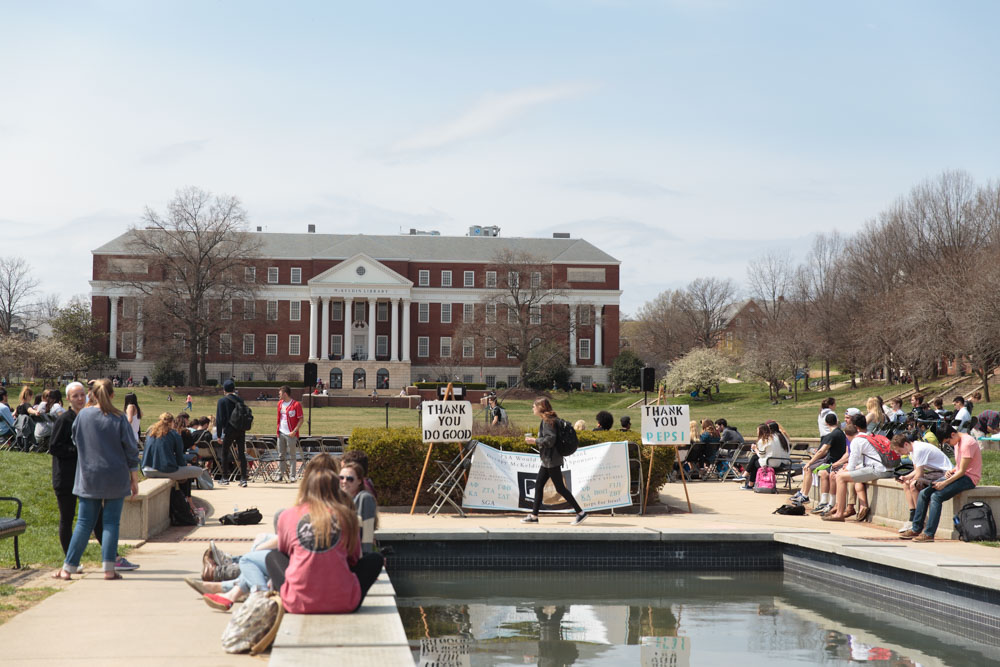Views expressed in opinion columns are the author’s own.
Recently, several U.S. senators proposed a bill that would hold campus leaders and administrators accountable for any sexual assault that occurs on their watch. The bill was proposed as a response to the recent mishandling of sexual abuse accusations at both Michigan State University and Penn State University.
The three senators who introduced the bill released a statement on it, explaining that “in both the [Michigan State and Penn State] cases, university leaders failed to take action on or even claimed they were unaware of reports of sexual abuse by university employees, despite the fact that official Title IX or external investigations had been conducted.”
This bill is just one part of the larger fight against sexual assault on college campuses. The scope of the problem is massive: 1 in 5 female undergraduates are sexually assaulted while in college, and more than 300 universities — including the University of Maryland — are under investigation for Title IX violations.
[Read more: U.S. Education Department opens third Title IX investigation into UMD]
While the possibility is remote that the Education Department will remain vigilant in its investigations under the Trump administration, the need for accountability has never been greater, and complacency isn’t an option.
The response to this failure to act against sexual assault is inspiring. The torch has been picked up by students and professors, regular citizens and members of Congress, all employing their various resources and skills to create solutions, both large and small, to this vast and complex issue.
In 2014, a young woman named Jessica Ladd founded a software platform called Callisto, which provides a secure online space for reporting sexual assault and abuse. A survivor of sexual assault herself, Ladd told NPR the process of reporting was “more traumatic than the assault,” explaining, “I wasn’t believed, and ended up regretting reporting.”
Callisto created a new way to report, which sidesteps many of the bureaucratic hoops that come with reporting sexual assault and harassment. Since its launch, Callisto has been implemented at eight institutions across the country, most prominently at Stanford.
At Columbia University, two professors are tackling the issue a different way. The aim of the $2 million initiative titled SHIFT — The Sexual Health Initiative to Foster Transformation — is to conduct a rigorous examination of the “individual, interpersonal, and structural (cultural, community, and institutional) factors that shape sexual health and sexual violence for undergraduates at Columbia and Barnard.”
By beginning to understand how sexual assault functions at each level of a university — the individual, interpersonal, contextual and structural — the study aims to implement a series of concise policy solutions that target and subsequently prevent assault. Although the results have yet to be published, the scope and gravity of SHIFT is unparalleled; no other study of this magnitude has been done at a university in the United States, and its results may inform where university sexual violence prevention goes next.
[Read more: ‘It’s Real’: A seven-part look at how sexual assault is handled at the University of Maryland]
In a different vein, many universities across the country have begun to implement rigorous bystander intervention trainings — one of the most prominent being a program called Green Dot. Bystander intervention has factored into many efforts working to end sexual violence; it was the bedrock of the Obama White House’s “It’s On Us” campaign.
These trainings do not frame sexual violence as exclusively perpetrated by men. Rather, they aim to empower every member of a community — students, teachers, administrators — and show them they have the collective power to be allies and stop sexual violence before it happens.
Although different in scope, each of these efforts take a multidimensional, proactive approach to combating sexual violence and the culture that encourages it. What is arguably most revolutionary about each of these approaches is the extent to which they remove the layers of bureaucracy that often deter victims from reporting sexual violence.
Rather than being exclusively on the defensive, universities should adopt the proactive mentality that’s fundamental to efforts like Callisto, SHIFT and the Green Dot Program.
Sarah Riback is a sophomore English and sociology major. She can be reached at riback.sarah@gmail.com.



